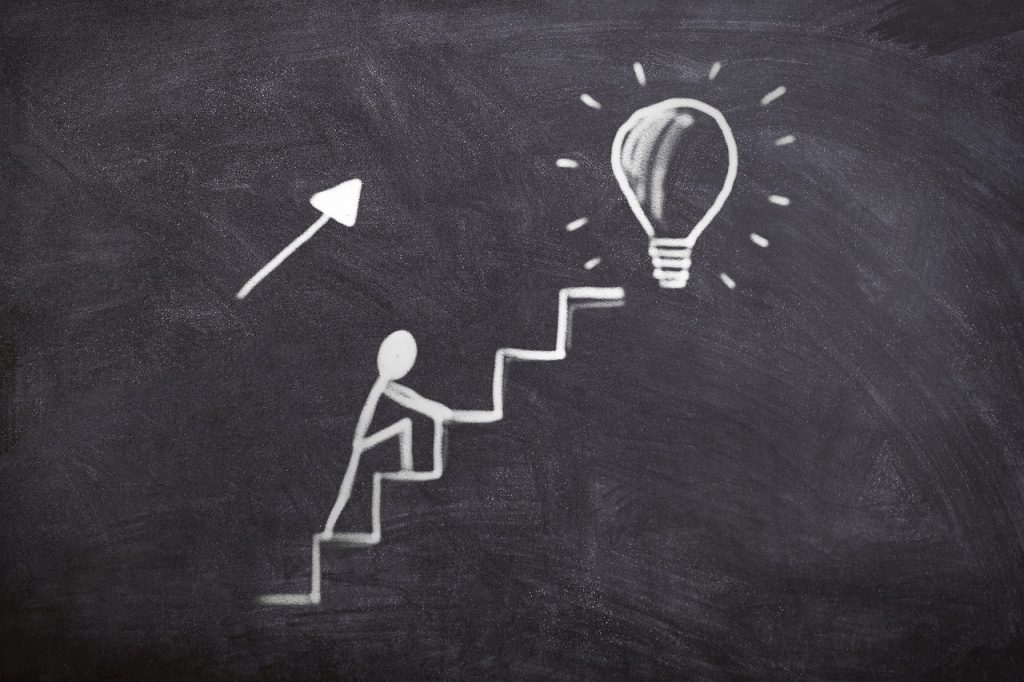Making your dreams come true mostly depends on the action you take surrounding the ideas that come to you. As the best ideas tend to do it comes when we least expect it to. You just wake up one morning and have an idea stuck in your head. We have all experienced this on some level. Today I want you to consider those ideas and start taking action towards making it a reality. But first let’s understand where these ideas come from.

During our waking hours we spend a large amount of time using our brain to solve a variety of problems. After a long day of using your mind, fatigue sets in and solving even simple problems become difficult. This becomes quite evident after a long day at work. On arriving home you know that you have important home affairs to attend to but you just can’t seem to concentrate. So, instead you choose to relax and enjoy family, alone or “hobby” time. All the while the problem is still with you but just on ice for the time being. A few hours into your relaxation time the answer to your problem strikes out of nowhere. How did this happen? You spent no time working on the problem?
This is similar to waking up one random morning with a great idea. You have no way of knowing where it came from. A general problem that could occur here is that it’s been so long since you experienced the problem that the solution or idea you awoke with makes no sense. Because it is such an untimely idea you will need to sit down and remember which problem the idea fits best to. Only then can you match the idea to the problem. (But no, what do we all do? Carry on with our usual business thinking that we will remember the idea and we hardly ever do.) From here we begin to look at the difference between conscious and subconscious problem solving. Smaller problems spend less time in the subconscious whereas larger problems take more time to go through the subconscious filter. How does this work?

Your conscious mind is a great tool for concentration. It specializes in applying your knowledge to a problem through a method of elimination by weighing risk vs reward. This process happens very fast and your mind adjusts concepts and ideas during the problem solving process, relevant to the speed that new information becomes available. Depending on the level of risk involved you might choose to deliberate and take some time to go over our facts first. If there is little to no risk perceived then your decision is almost instantaneous. During this process the “spectrum of information filters” the brain applies vs the “information received” is limited to the individual’s experience. Your problem solving freedom is further limited to your immediate needs under the given weight of pressure. This is a short explanation of how the waking consciousness solves problems.
Now for your subconscious process and the ideas that come out of nowhere. Our subconscious mind stores all the information discarded as “non important” by the waking consciousness. Imagine for a second how vast the subconscious mind is. Every lesson, feeling, outcome, interaction and more are stored there. Ever hear of the term “I will sleep on it.” Your mind is automatically geared towards screening a complex problem using the subconscious. Even though this takes longer the results are better. The problem here is that we are not always in control of the timing and the relating idea could take weeks to formulate. This also applies to past decisions. The best example of your subconscious in action during past decisions would be that uneasy feeling you get in the back of your mind, telling you that you could have made a better choice.

For the most part your subconscious is great but there is another problem. Your subconscious does not always speak a language you necessarily understand. Ranging from strange dreams to unusual emotions at the weirdest times. The secret is and will always be to know yourself. Spend time alone and get to know yourself on a very intimate level. Sounds obvious but I have found this to rarely be the case. Understand your mind and moods, what makes you tick? The reason for my lengthy explanation is that you might already have the answer you seek. You just do not know how to interpret the subconscious communicating.
Humans are amazing beings and yet there is so much we still need to understand. Nonetheless we need to start at the beginning. So here is what I recommend you do. Listen to your ideas and take action. The more you listen the better you will learn your subconscious method of communication. The answer might just be hiding in the action.
(The study into the subconscious is a vast field with many aspects, this is but a layman’s glimpse into this field. The facts are derived from personal experience and study in the field. The opinions are my own.)



